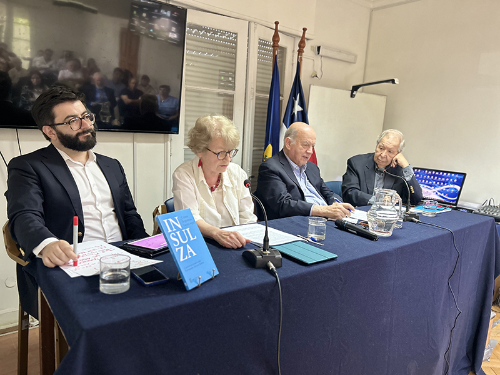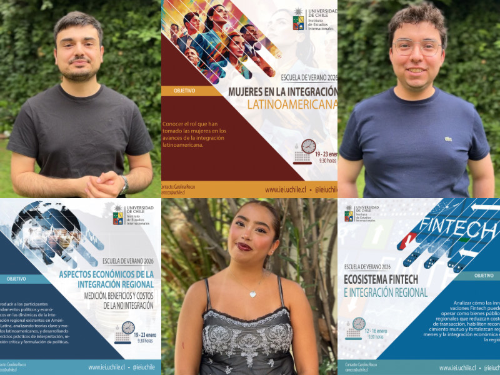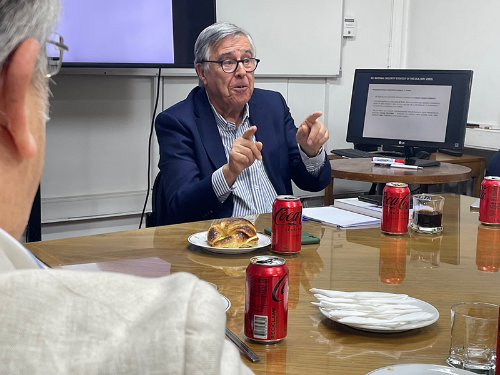It is widely accepted in international environmental law that public participation can strengthen the transparency, accountability and legitimacy of environmental decision-making procedures. Principle 10 of the Rio Declaration on Environment and Development states that “environmental issues are best handled with participation of all concerned citizens”. It furthermore provides for access to information, public participation, and access to justice in environmental matters, also known as “access rights”. Twenty years later, the UN Conference on Sustainable Development (Rio + 20) re-confirmed Principle 10 in its outcome document The Future We Want, underscoring access rights as an essential component in the promotion of sustainable development. At Rio + 20, eight countries (including Chile) signed the Declaration on the Application of Principle 10 in Latin America and the Caribbean. In this declaration, signatory countries (the number of which has since increased to 23) committed to negotiating an agreement for the full implementation of Rio Principle 10 in the region. The fifth meeting of the negotiating committee of the Regional Agreement on Access to Information, Participation and Justice in Environmental Matters in Latin America and the Caribbean (LAC Principio 10) took place from 21-25 November 2016 in Santiago, Chile.
In the international legal regime to combat climate change, states have the obligation to promote and facilitate access to information on climate change and its effects along with public participation in developing adequate responses. Significant progress has been achieved in this area. For instance, non-state actors (i.e., civil society in a broad sense, including business and industry NGOs, environmental NGOs, indigenous peoples’ organizations, trade union NGOs, women and gender NGOs, and youth NGOs) may participate as observer organizations in the intergovernmental negotiations, organize side events and exhibits during these negotiations, and present reports. Non-state actors may also attend as observers the meetings of the compliance committee for the Kyoto Protocol and provide information. However, the opportunities for meaningful participation by non-state actors in facilitating compliance with climate change law remain limited. The good news is that the Paris Agreement established implementation mechanisms that make it possible for non-state actors to engage more meaningfully in the formal procedures established by the regime.
Adopted in December 2015, the Paris Agreement builds upon the United Nations Framework Convention on Climate Change (UNFCCC) and aims to strengthen the global response to climate change. The Paris Agreement rapidly entered into force on 4 November 2016, three days before the opening of the twenty-second session of the Conference of the Parties to the UNFCCC (COP 22), held in Marrakech, Morocco from 7-18 November. Known as the COP of Action, COP 22 focused on the implementation of the work program under the Paris Agreement, mainly in the Ad Hoc Working Group on the Paris Agreement (APA). During COP 22 the APA discussed six substantive agenda items related to the implementation of the Paris Agreement. The role of non-state actors could be strengthened through at least three of the six agenda items. First, through the modalities, procedures and guidelines for the enhanced transparency framework established in Article 13. For instance, the transparency framework could allow civil society assessment reports on parties’ compliance to be considered in the technical expert review. Second, through the modalities for the periodical overall implementation assessment, or “global stocktake”, provided for in Article 14. For example, the global stocktaking procedure could allow input from non-state actors to be considered. Third, through the modalities and procedures of the implementation and compliance mechanism established by Article 15. For example, non-state actors could be given the power to trigger compliance procedures. All parties to the climate change regime have an opportunity to enhance public participation through these newly established mechanisms. Parties from Latin America and the Caribbean are in a particularly favorable position to take advantage of this opportunity because of the ongoing negotiations of the regional agreement for the implementation of Rio Principle 10.
Indeed, the regional negotiations on Principle 10 show that there is a growing consensus that access rights are essential to the promotion of sustainable development, democracy and a healthy environment. If this consensus could be channeled to the negotiations on the implementation of the Paris Agreement, progress could be made in advancing the role of non-state actors in strengthening the global response to climate change. Eight of the 23 countries participating in the negotiations on Principle 10 also form the Asociación Independiente de Latinoamérica y el Caribe (AILAC). AILAC is a regional negotiating group under the UNFCCC that shares interests on climate change and generates coordinated positions within climate change negotiations, including the current negotiations on the implementation of the Paris Agreement. If the consensus reached within the negotiations on Principle 10 were channeled to the negotiations on the implementation of the Paris Agreement either via AILAC or by individual states that are party to both processes (implementation of Principle 10 and implementation of the Paris Agreement), the opportunity to strengthen public participation in the climate change regime could increase significantly. In addition, channeling the regional consensus to the global sphere could create synergies between global and regional environmental rules, leading to improved implementation of Rio Principle 10 at all levels, including national jurisdictions. In Chile, for instance, this could help to allow public participation at earlier stages in environmental impact assessment procedures.
In conclusion, the negotiations on the Paris Agreement present an opportunity for states to strengthen public participation in the climate change regime. Enhanced participation of non-state actors could strengthen transparency, accountability and the quality of decision-making as well as facilitate compliance and increase ambition among the parties. The implementation mechanisms established by the Paris Agreement could make it possible for non-state actors to engage more meaningfully in the global response to climate change. This could be achieved, for instance, by allowing non-state actors to participate in the transparency framework, the global stocktake and the compliance mechanism. The negotiations on Rio Principle 10 enable Latin America and the Caribbean to play a role in promoting the stronger participation of non-state actors. This could be done, for example, through individual or coordinated positions within the climate negotiations that would channel the regional consensus on the issue. Such an effort would not only strengthen public participation in the climate change regime and in domestic jurisdictions, but would also promote harmony and coherence between global, regional and national rules of environmental law.






